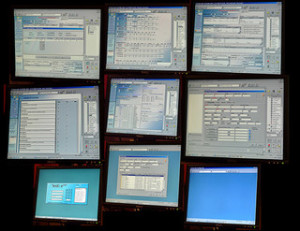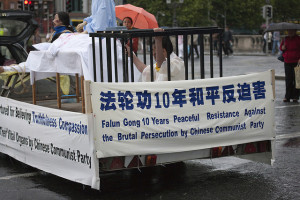 I ask this question because "labour camp management software" was one of the top search terms for my blog today. Yes, it came with the British spelling of the word, "labor". I typed the search term into Google myself, and the first page is full of websites about "camp management software." Camp management software is something I understand. I can see the need for a camp of some sort to need software so that it can manage all of campers, programs, tasks, finances, and staff much more easily. But, labour camp management software?
I ask this question because "labour camp management software" was one of the top search terms for my blog today. Yes, it came with the British spelling of the word, "labor". I typed the search term into Google myself, and the first page is full of websites about "camp management software." Camp management software is something I understand. I can see the need for a camp of some sort to need software so that it can manage all of campers, programs, tasks, finances, and staff much more easily. But, labour camp management software?
There IS a Market For It
Yes, North Korea has several labor camps and perhaps Kim Jong-Un and his officials could use a little help managing everything that goes on in those camps. But, why would they want software for that? It leaves a digital paper trail of all their activities, creating more proof of the human rights abuses that happen behind those walls. It would also mean that North Korea would have to get its country Internet, and if North Korea got Internet access, then the entire dictatorship would crumble. I don't know if North Korea could handle labour camp management software. I mean, I don't think there's a strong technology industry or tech-focused education in North Korea. Training people in how to use this software would be such a hassle since you might even have to train them in how to use a computer.
Perhaps I'm Thinking About This a Little Too Hard
I mean, it's very possible someone typed in this keyphrase by accident. It's possible that his/her first keyphrase started with the word, "labour". After that search, this person wanted to do another search, but managed to delete everything but the word, "labour". The next search happened to be "camp management software", and hence the funny top search term for my blog. But, if it was a mistake, then why click the link to my blog? Why pay attention to the results of a keyphrase you didn't intend to search? This reasoning makes it seem more likely that the search term was intentional, which leaves me wondering what the hell labour camp management software is and who would want to purchase this software.
Camp Management Software that Also Managed the Labour?
That's much more plausible, and if the search term were spoken into Google Hummingbird, then the search engine might have interpreted the phrase this way. Better search terms for that would be project management software, or maybe recruiting software, or something like Basecamp. Basecamp is a popular project management software brand, so it would make sense that people would search for Basecamp or something along the lines of "camp", and "software", and "management." I certainly like Basecamp a lot better than labour camp management software. I've only heard great things about Basecamp. I've only heard terrible things about labor camps.
Well, I Don't Have Labour Camp Management Software
I wouldn't have anything on this blog that would support such a product, or would support the ventures and people that would use this product. The only reason why my blog might have come up for this search term is because of the Chinese labor camps action that I wrote the other day. Supposedly, China closed its labor camps, but many aren't sure if that was just something the government said for positive press, or if the camps are actually closing, or if it's a mix between the two.
There was an article that I remember reading (but now I can't find it) that discussed North Korea's labor camps. The article said that satellite imagery showed that one or two of the camps looked deserted, and experts wondered what happened to those camps and the people in them. Perhaps that's another reason why North Korea would be a bad customer for the software: the software would document what happened to those camps and the people, and the country probably doesn't want anyone to know.
photo credit: juhansonin via photopin cc

